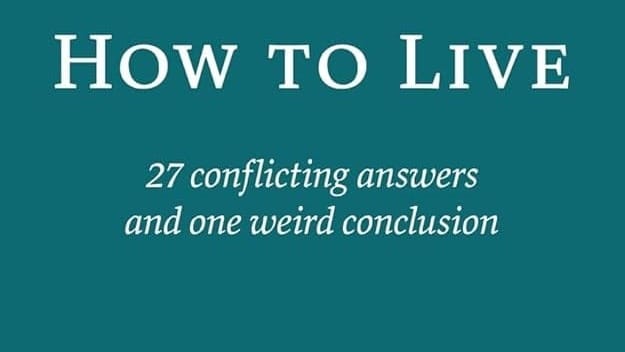Picture this: A powerful CEO decides to expand his empire overseas. Before leaving, he distributes seed money to his employees with explicit instructions to "make it grow." Upon his return, he rewards those who delivered impressive returns and brutally executes anyone who failed to maximize profits. The employees who questioned his methods? They're eliminated too.
Sounds like a dystopian corporate thriller, right? Yet somehow, we've been reading Luke's parable of the talents (Luke 19:11-27) as if this ruthless business mogul represents God.
Houston, we have a theological problem.
Let's take a fresh look at what Jesus actually said. In Luke 19, Jesus tells a story about a nobleman who travels to a distant country to receive royal power. This nobleman gives money to his slaves, expecting them to invest and multiply it while he's gone. When he returns as king, he rewards the profitable servants and punishes the one who simply preserved the money. And this same nobleman also slaughters all the citizens who opposed his rule.
The traditional interpretation goes something like this: God is the nobleman, we are the servants, and our job is to maximize our spiritual investments for the kingdom. Don't waste your talents! Make them multiply! God expects a return on his investment!
Pump the brakes.
Several red flags should be flying. Jesus tells this parable specifically to correct his disciples' assumption that God's kingdom was about to appear immediately. In other words, this isn't a story about how God's kingdom works—it's a story about how earthly kingdoms work, and why that's precisely not what God's kingdom looks like.
The nobleman's methods are morally reprehensible. He expects his servants to engage in usury (lending money at interest), which Jewish law explicitly prohibited. He conquers territory through violence. He executes political opponents.
Plus, the nobleman is explicitly described as unpopular. The citizens "hated him and sent a delegation after him, saying, 'We do not want this man to rule over us.'" Since when does God need to violently suppress opposition to establish his kingdom?
Here's what I think is happening: Jesus is holding up a mirror to show his disciples—and us—what empire looks like. He's describing the brutal logic of conquest, exploitation, and wealth accumulation that characterized the Roman Empire and every other earthly kingdom. The parable isn't saying "Be like this nobleman." It's saying "Don't confuse this kind of power with God's kingdom."
Remember the Beatitudes? "Blessed are the poor, for theirs is the kingdom of God." Not "blessed are those who successfully leverage their talents into maximum returns."
Jesus spent his ministry telling parables about workers who get paid the same regardless of hours worked, about banquet hosts who invite the poor and marginalized instead of the wealthy and connected. These aren't the business practices of a venture capitalist—they're the upside-down economics of grace.
The servant who buried the money? Maybe he's the hero of the story. Maybe he's the one who refused to participate in an unjust system. Maybe his "fear" of the master was actually moral wisdom—he recognized that this nobleman's kingdom was built on violence and exploitation, and he wanted no part of it.
When we misread this parable as divine endorsement of wealth accumulation, we end up with a Christianity that looks suspiciously like American capitalism with a Jesus fish slapped on top. We start measuring God's blessing by bank account balances and confusing material prosperity with spiritual favor.
This helps explain why so many American evangelicals have fallen head-over-heels for figures like Donald Trump and Elon Musk. Never mind that their behavior often contradicts basic Christian values—they're rich, they're powerful, they project strength. In a church culture that has unconsciously absorbed the nobleman's values from Jesus' parable, that's enough to earn not just respect but near-worship.
Look at how "prosperity gospel" preachers are celebrated despite flying around in private jets while their congregants struggle to pay rent. We've created a Christian culture where net worth becomes proof of God's favor and poverty becomes evidence of spiritual failure.
But we've twisted Jesus' warning into its opposite. Instead of seeing wealth as spiritually dangerous, we've made it the goal. Instead of blessing the poor, we blame them for their lack of faith. Instead of questioning why some people accumulate billions while others can't afford healthcare, we celebrate the billionaires as examples of God's blessing.
The evangelical infatuation with Trump makes perfect sense through this lens. Here's a man who embodies every value of the violent nobleman from Jesus' parable—he accumulated wealth through questionable means, he attacked his political enemies, he demanded absolute loyalty, and he promised to make his followers winners in a zero-sum game. Yet rather than recognizing these as the characteristics Jesus warned against, many Christians saw them as signs of God's anointing.
Similarly, our culture's hero-worship of figures like Elon Musk reveals how deeply we've absorbed empire values. We celebrate ruthless business practices as "disruption." We admire those who accumulate obscene wealth while their workers struggle. We confuse the ability to generate profit with moral authority.
How we read this parable shapes how we understand God's character and what kind of life we're called to live. If God is the demanding nobleman who expects maximum returns, then faith becomes performance-based anxiety. But if Jesus is actually critiquing that entire mindset, then we're free to measure success not by accumulation but by compassion, not by conquest but by service.
God isn't a venture capitalist looking for maximum returns. God is the parent who runs toward the prodigal son, who pays workers the same regardless of hours worked, who invites tax collectors and sinners to dinner. God's kingdom isn't built on the logic of empire—it's built on the logic of love.






Discussion